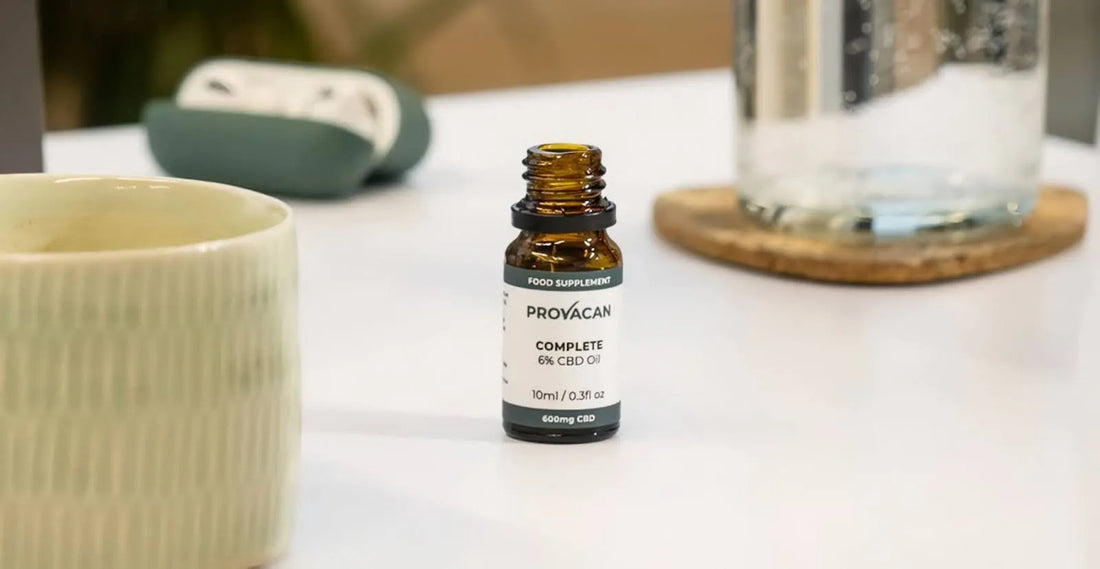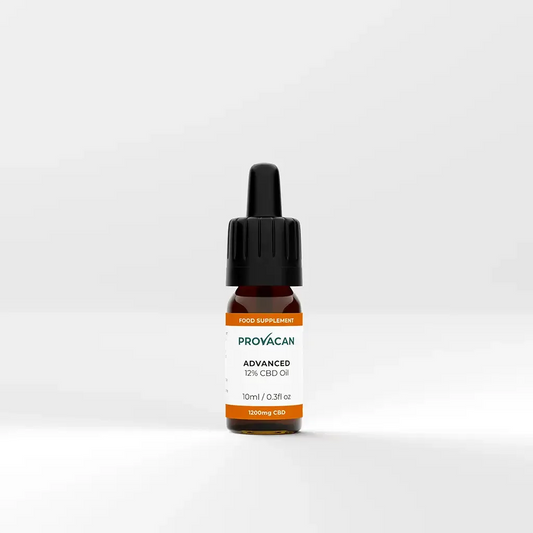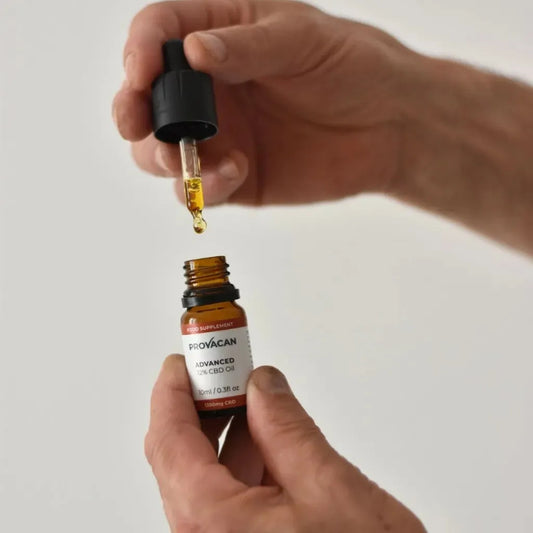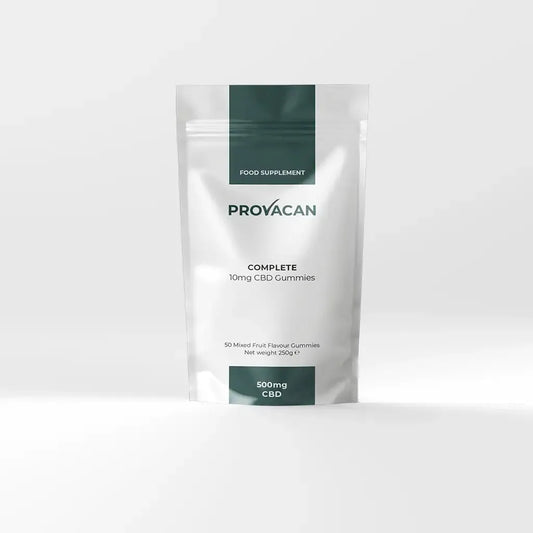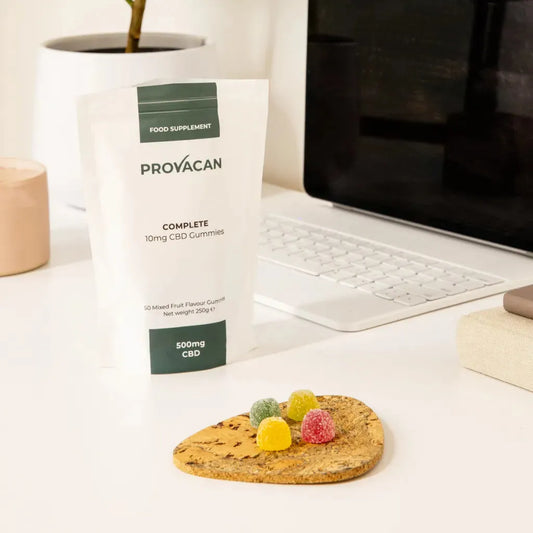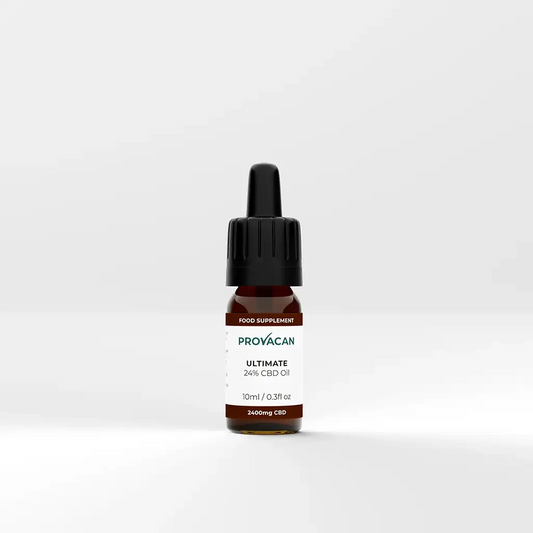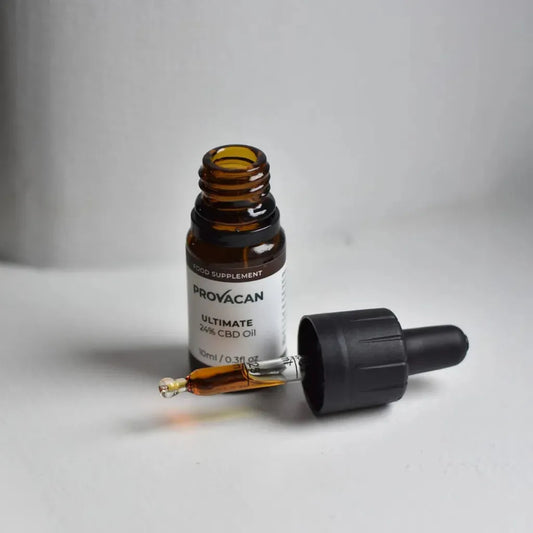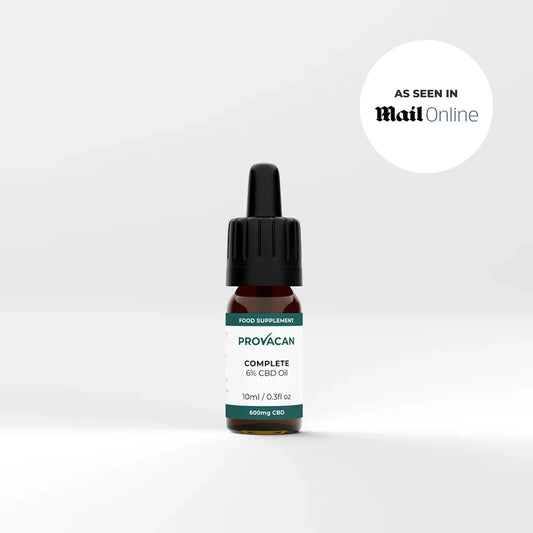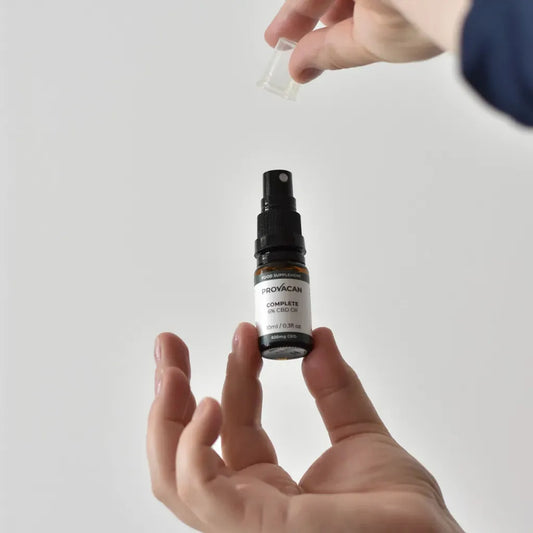Key Takeaways:
- CBD is a Natural Alternative for Treating a Variety of Conditions: From seizures to anxiety, CBD has shown promise in treating a variety of health conditions, and is a natural alternative to other types of medication.
- CBD is Non-Addictive: CBD’s counterpart, THC, produces a high and can lead to addiction and substance abuse. But because CBD does not produce a high, it does not lead to addiction or the potential for abuse.
When it comes to utilizing CBD products, understanding the potential risks and benefits is crucial. One common concern among individuals considering CBD use is whether or not CBD is addictive. The concept of addiction can be alarming, especially when it comes to substances that are ingested regularly. As a leading authority in the CBD industry, Provacan is here to provide you with accurate and insightful information regarding the addictive properties of CBD.
At Provacan, we prioritize transparency, quality, and customer well-being above all else. Our dedication to scientific research and excellence allows us to offer products that meet rigorous standards and provide reliable results. In this article, we will explore the effects of CBD on the body, examine the latest research on CBD addiction, and address common misconceptions surrounding this topic.
Whether you are new to CBD or a seasoned consumer seeking clarity on its addictive potential, Provacan is here to guide you through the intricate world of CBD wellness. Join us as we explore the facts, dispel the myths, and empower you to make informed decisions about your well-being.
The Science Behind CBD
CBD, short for cannabidiol, is one of over a hundred naturally occurring compounds found in the cannabis plant. Unlike its well-known counterpart, tetrahydrocannabinol (THC), CBD is not psychoactive, meaning it does not cause the “high” typically associated with cannabis use.
The human body has a complex system known as the endocannabinoid system (ECS), which plays a crucial role in regulating various physiological processes such as sleep, appetite, pain, and immune response. CBD interacts with the ECS by influencing its receptors, which are found throughout the body.
Studies have shown that CBD may have potential therapeutic benefits due to its interaction with the ECS. For example, research suggests that CBD may help reduce anxiety and depression by affecting serotonin levels in the brain. Additionally, CBD has been investigated for its anti-inflammatory properties, making it a potential treatment for conditions such as arthritis and chronic pain.
Furthermore, CBD has shown promise in the treatment of epilepsy, with a new CBD-based medication now being approved for specific types of seizures. The neuroprotective properties of CBD are also being studied for their potential in treating neurodegenerative diseases like Alzheimer’s and Parkinson’s.
It is important to note that more research is needed to fully understand the effects of CBD on the body and its potential uses in healthcare. However, the existing scientific evidence indicates that CBD has significant therapeutic potential and is not addictive.
Addressing the Question: Is CBD Addictive?
CBD is a non-intoxicating compound found in cannabis and hemp plants. Unlike its counterpart THC (tetrahydrocannabinol), CBD does not produce a "high" sensation commonly associated with cannabis use. One common concern among individuals considering using CBD products is whether they are addictive.
Numerous studies have shown that CBD is non-addictive and does not lead to substance abuse. In fact, the World Health Organization (WHO) has stated that CBD exhibits no effects indicative of any abuse or dependence potential. Additionally, a recent review published in the Journal of Drug and Alcohol Dependence found that CBD does not appear to produce the same addictive and rewarding effects as substances like opioids.
CBD interacts with the body's endocannabinoid system, which plays a crucial role in regulating various physiological functions. By influencing cannabinoid receptor activity, CBD can help maintain balance and promote overall well-being without the risk of addiction. Some individuals even use CBD to manage cravings and symptoms associated with substance withdrawal.
It is essential to note that CBD products may contain trace amounts of THC, which does have addictive potential. However, reputable CBD brands adhere to strict regulations to ensure their products contain only legal levels of THC. When choosing a CBD product, it is crucial to opt for a reputable company like Provacan, known for its high-quality CBD formulations and rigorous testing processes to guarantee purity and compliance.
Common Misconceptions About CBD Addiction
There are several misconceptions surrounding CBD and its potential for addiction. One common belief is that because CBD is derived from cannabis, it must be addictive like marijuana. However, this is not the case. Unlike THC, the psychoactive compound in cannabis that is responsible for the "high," CBD does not produce the same mind-altering effects and is not addictive.
Another misconception is that CBD usage can lead to substance abuse. Research has shown that CBD has a low potential for abuse and dependency compared to other substances. In fact, studies have indicated that CBD may even help individuals struggling with addiction to other substances by reducing cravings and withdrawal symptoms.
Some people also believe that regular use of CBD can lead to tolerance, where increasing amounts are needed to achieve the same effects. While tolerance can develop with some substances, there is limited evidence to suggest that CBD users build up tolerance in the same way. The body does not appear to develop a tolerance to CBD as quickly as it does to other substances, making addiction less likely.
It is essential to distinguish between CBD and THC when discussing addiction potential. While both compounds come from the cannabis plant, their effects on the body differ significantly. CBD is non-intoxicating and non-addictive, making it a popular choice for those seeking natural relief without the risk of addiction. By understanding these common misconceptions, individuals can make informed decisions about incorporating CBD into their wellness routines.
THC vs. CBD: Understanding The Differences
When it comes to cannabinoids, two of the most well-known compounds are THC (tetrahydrocannabinol) and CBD (cannabidiol). These two substances are derived from the same plant — cannabis — but they have vastly different effects on the body. Understanding the key contrasts between THC and CBD is essential in making informed decisions about their use.
THC is the psychoactive component of cannabis, responsible for the "high" that is commonly associated with marijuana use. This compound interacts with the brain's receptors, leading to euphoria, altered sensory perception, and other psychoactive effects. On the other hand, CBD is non-psychoactive and does not produce intoxicating effects. Instead of binding directly to cannabinoid receptors in the brain, CBD influences these receptors indirectly, offering potential therapeutic benefits without the high.
THC is predominantly found in marijuana, while CBD is abundant in hemp. The legal status of these compounds varies depending on their source and concentration. In the UK, CBD products containing less than 0.2% THC are legal, whereas cannabis products containing higher levels of THC are restricted. Consumers should be mindful of these regulations when purchasing CBD products to ensure compliance with the law.
In terms of potential health benefits, both THC and CBD have shown promise in addressing various conditions. THC is known for its analgesic and anti-inflammatory properties, making it effective in managing pain and muscle spasms. CBD, on the other hand, is renowned for its anxiolytic and anti-inflammatory effects, offering relief from anxiety, insomnia, and skin conditions.
By understanding the differences between THC and CBD, consumers can make informed choices about their cannabinoid usage based on their individual needs and preferences.
Legal Status And Regulations Around CBD
The legality of CBD products can vary widely depending on the country and region. In the UK, CBD is legal as long as it meets certain criteria. CBD products must contain no more than 0.2% THC to be considered legal. THC is the psychoactive compound in cannabis that produces a "high." CBD products that comply with this THC limit are legal to buy and sell in the UK.
However, regulations around CBD can still be complex. In the UK, CBD is regulated as a food supplement. This means that CBD products cannot make medical claims or be marketed as medicines unless they have gone through the proper regulatory process and have been approved as such.
It's essential for consumers to be aware of the legal status of CBD products in their country. While CBD is generally legal in many parts of the world, it's crucial to ensure that you are purchasing CBD products from reputable sources that comply with legal requirements.
Before purchasing or using any CBD products, it's advisable to research the laws and regulations specific to your location to ensure compliance with legal requirements. Stay informed and make informed decisions when it comes to the legal status of CBD in your area.
Understanding The Non-Addictive Nature Of CBD
It is crucial to put to rest the common misconception surrounding the addictive properties of CBD. Countless scientific studies have shown that CBD is non-addictive and does not produce the euphoric "high" typically associated with its cousin compound, THC. The interaction of CBD with the body's endocannabinoid system is unique, offering a wide array of potential health benefits without the risk of addiction.
As a leading provider of premium CBD products, Provacan remains committed to delivering high-quality CBD formulations that adhere to stringent purity and potency standards. Our dedication to scientific research and innovation ensures that our customers experience the full therapeutic potential of CBD while understanding and appreciating its non-addictive nature.
Whether you are new to the world of CBD or a seasoned consumer, you can trust Provacan's products to support your overall wellness journey without the worry of addiction. With a focus on customer care and product excellence, Provacan stands as a reliable resource for those seeking to harness the benefits of CBD for their well-being.
Read also:
- Can You Take CBD Oil on a Plane?
- Does CBD Work for Everyone?
- Is CBD Oil Legal in the UK? Find Out Now
Frequently Asked Questions on the Effects and Addictive Nature of CBD
Is CBD addictive?
No, CBD (Cannabidiol) is not considered addictive. It operates differently within the body compared to substances that lead to dependency. The World Health Organization has reported that CBD does not exhibit effects indicative of any abuse or dependence potential. At Provacan, our focus on purity and scientific backing further ensures our products support your well-being without causing addiction.
How does CBD affect the brain?
CBD interacts with the body's endocannabinoid system (ECS), specifically with the CB1 and CB2 receptors, which are found in the central and peripheral nervous systems, respectively. Unlike THC, CBD does not produce a "high" but rather influences the brain to use its own endocannabinoids more effectively. This can result in reduced stress, and alleviation of anxiety and pain, thus promoting a balanced and healthy brain function.
Can you develop a tolerance to CBD?
There is limited evidence to suggest that CBD users can develop a tolerance. In fact, some studies indicate the opposite; a phenomenon known as "reverse tolerance" where continued use of CBD may lead to the need for smaller doses for the same effect. This characteristic further distinguishes CBD from potentially addictive substances.
Is there a difference between CBD and THC in terms of addiction?
Yes, there's a significant difference between CBD (Cannabidiol) and THC (Tetrahydrocannabinol) concerning addiction. THC is the psychoactive compound found in marijuana that causes the "high" sensation and has a higher risk of addiction. CBD, on the other hand, is non-psychoactive and has not been associated with addiction, making it a safer alternative for those looking for therapeutic benefits without the psychoactive effects.
Are there withdrawal symptoms from CBD?
Given CBD’s non-addictive properties, withdrawal symptoms are highly unlikely. Users of CBD products typically do not experience the significant withdrawal symptoms that can be found with other substances. Any change felt upon stopping CBD might be related to the return of prior symptoms that CBD may have been alleviating.
What are the potential side effects of using CBD?
While CBD is generally well-tolerated, some individuals may experience mild side effects such as fatigue, changes in appetite, or digestive discomfort. These are typically rare and can often be mitigated by adjusting dosage. Provacan prioritizes the highest quality and purity in our products to minimize potential side effects for our customers.
How do CBD products vary in effects?
CBD products can vary widely in their effects based on their spectrum, formulation, and concentration. Full-spectrum products contain CBD along with a range of other cannabinoids and terpenes, potentially offering the "entourage effect," whereas broad-spectrum products are THC-free but maintain other cannabinoids. Isolates are pure CBD. The choice between these products affects the overall experience and benefits, with Provacan offering options to suit different needs and preferences to ensure optimum well-being.
Sources:
- Medicinal cannabis can safely relieve cancer pain and curb total meds use | BMJ. (n.d.). https://www.bmj.com/company/newsroom/medicinal-cannabis-can-safely-relieve-cancer-pain-and-curb-total-meds-and-opioid-use/
- NHS . (2022, May 27). Medical cannabis (and cannabis oils). NHS. https://www.nhs.uk/conditions/medical-cannabis/

